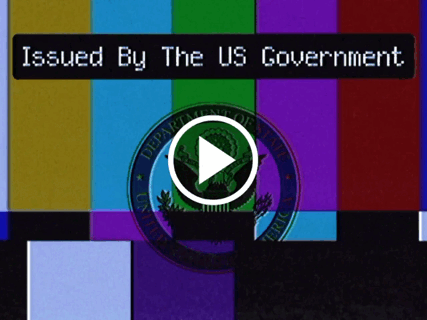The Iraq war of 2003 is a haunting memory for the world, but it also serves as a pivotal catalyst in altering the international geopolitical landscape. The aftermath of the US invasion, a watershed moment in modern history, has sparked the rise of a multipolar world, where nations beyond the traditional western sphere of influence have emerged as powerful actors on the world stage.
Origins of a New World Order: The Invasion
“On the night of 19-20 March, 2003, the US air force began bombing the Iraqi capital, Baghdad.” With these actions, the geopolitical framework of the world began its shift towards multipolarity. The invasion of Iraq, deeply divisive within NATO and EU, set in motion a global power shift that was, at the time, unimaginable to war strategists in Washington and London.
“The Iraq war also marked the onset of diplomatic coordination between Moscow and Beijing at the UN Security Council (UNSC).” This unprecedented coordination has, over the last two decades, transformed into a determined joint policy towards “guarding a new world order based on international law.” In the 20 years since the Iraq invasion, the balance of power has tilted significantly, ushering in a new era of multipolarity that the war planners never foresaw.
Viral Content: Brace Yourselves… A Storm is Coming! You Just Have to Know Where to Look!
Connecting the Dots: The Immediate Consequences of War
The invasion, underpinned by an unlawful decision, left a devastating mark on Iraq. The war’s aftermath – the complete annihilation of Iraq’s infrastructure, the dismissal of the Iraqi Army, a surge in refugees, and a growth in extremism – still resonates today.
“The flimsy reasons for the war, such as non-existent weapons of mass destruction (WMDs) and Baghdad’s alleged support of terror groups like Al Qaeda, were debunked extensively in the following years.” The manipulation of public sentiment was so successful that despite massive public protests across Western capitals, the war machine was already in motion, steered by the likes of Tony Blair and José Maria Aznar.
War Shadows: The Backdrop of the Invasion
A significant part of this saga lies in the origins of this war. The seeds for the invasion were sown before the fateful day in September 2001. As early as February 2001, Paul Wolfowitz, a known advocate of regime change in Iraq, had been appointed as the deputy secretary of defense. The war scenario was already being outlined, with the 9/11 attacks providing a convenient opportunity to set the stage.
George W. Bush, influenced by a hawkish circle around Dick Cheney, sought to complete what he perceived as unfinished business from the 1991 Gulf War. The quest to connect Iraq to the 9/11 terror attacks was aimed at rallying public and political support for a war, both domestically and internationally.
Also Read:Biden’s Mansion Just a Stone’s Throw Away from Epstein’s Island! Was Biden a Regular at Epstein’s ‘Pedo Island’? Unraveling the Dark Truth!
The UN Security Council in Crisis: Division Among Powerhouses
Tension among the UNSC members escalated as the invasion loomed. While Colin Powell attempted to present evidence of Iraq’s alleged possession of WMDs, China and Russia, along with Germany and France, stood firmly against the war.
“China and Russia, who vehemently opposed the war, began coordinating their decisions and responses, in part because of their respective oil interests in Iraq.” The evolution of this coordination is evident today in the increased bilateral cooperation and shared foreign policy between the two countries.
The Unfolding Chaos: Regional Instability and the Emergence of ISIS
The aftermath of the invasion was disastrous, leading to weekly attacks, the rise of Al Qaeda and ISIS, and perpetual conflict within Iraq. The Pandora’s box that China and Russia had predicted was indeed opened, unleashing widespread regional chaos. Their warnings, regrettably, went unheeded.
From Chaos to Multipolarity: Russia and China’s Assertive Diplomacy
In a strange twist of fate, the same day that marked the 20th anniversary of the Iraq invasion, Chinese President Xi Jinping embarked on a state visit to Moscow, symbolizing the increased unity between China and Russia.
Today, a new order is taking shape. “Orientation comes from Orient.” Power centers in Beijing and Moscow are presenting sound, cooperative strategies for resolving global conflicts, providing a stark contrast to the approach of traditional power hubs.
Institutionalizing the Multipolar Order: Learning from the Past
Twenty years on, the ghost of the Iraq war continues to shape global politics. The failed ‘war on terror,’ the rampant spread of extremism, and the catastrophic human cost have led to a world increasingly wary of unilateral decisions and interventions.
The Iraq invasion ended the era of direct US military invasions, leading to an era that desperately seeks alternatives to war. Today, the multipolar world order has emerged stronger, with nations working towards preventing the forever wars.
The Iraq war did not just trigger global chaos, it also sparked a significant shift in international politics. Today, we must recognize the gravity of that shift and strive for a world that respects international law, upholds peace, and nurtures multipolarity for a balanced and harmonious future. The wounds of the past must guide the strategies of the present to ensure a peaceful world for future generations.
